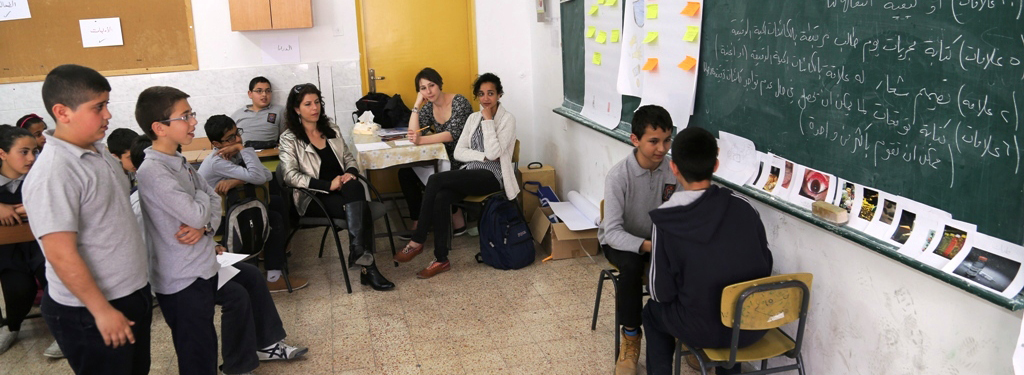Introduction
QCERD is confidently stepping forward into five new years of work building on cumulative experience and achievements, as well as, shortcomings. but the Centre aspires, nevertheless, towards delving into new areas based on evaluating past experiences and the Foundation’s five-year strategic plan which commenced in April 2014. In light of this, the Centre will take into account the following guidelines:
- The Centre’s integrative approach should consider the following: (i) human and financial resources; (ii) the Centre’s vision; (iii) priority issues; (iv) programmes of QCERD and the Foundation; (v) methodology; (vi) curricula;
- The rising number of teachers participating in its programmes;
- Educational research as an essential to the development of education in Palestine;
- Maximising the use of available resources namely the library, Ru’a Tarbawiyya Journal and the Foundation’s other publications;
- Creating inspiring educational models through professional development of teachers and innovative educational practices, and disseminating such models in the educational and social contexts;
- Merging the distinctive experience in Palestine with the larger human experience, through teachers’ exchange programmes, organising international conferences in Palestine and active participation in major conferences worldwide;
- Teaching and learning take place in diverse educational settings, and are therefore not limited to the classroom or the school. The areas QCERD is working on at present are of high importance as they will be providing alternative models, such as botanical gardens and interactive science centres;
- The teaching process takes place in a specific historical and political context to which education needs to be organically connected;
- Striking a balance between thepedagogical and physical activity, and that of the technological medium so that neither overwhelms the other;
- Contributing to local initiatives for establishing cultural and educational forums/centres, which provide vibrant hubs for teachers;
- Developing new and existing partnerships, deepening community interaction, and developing staff experience and skills.
 |
 |
| |

